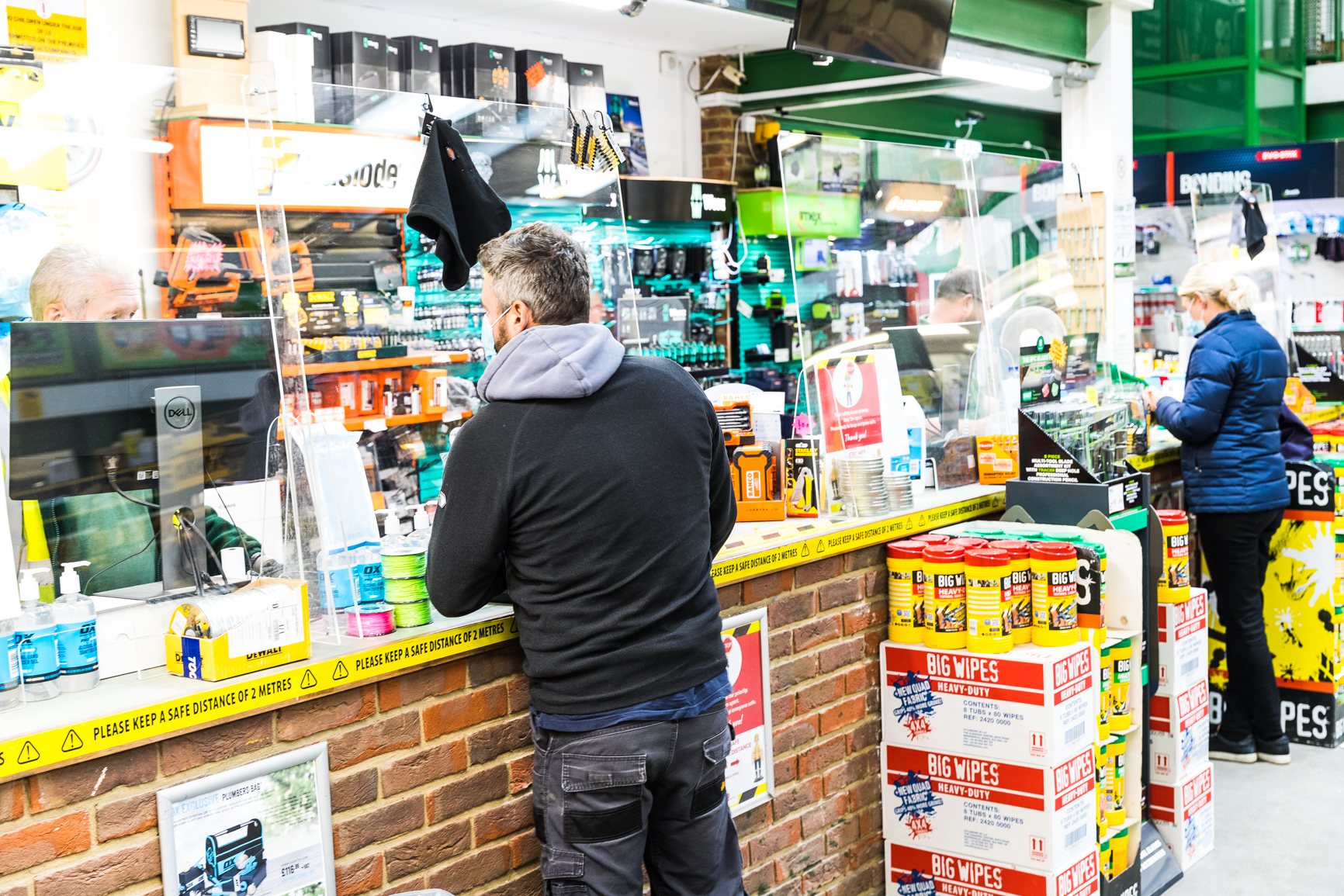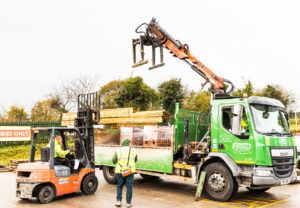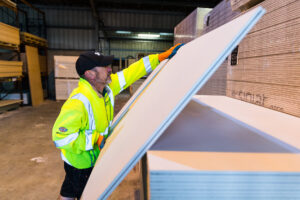Feb 16, 2023
Builders Still Buoyant Despite Inflation & Cost of Living Fears

Builders reveal a very limited impact of consumer price inflation and rising cost of living on their current and future workload according to a survey we have recently carried out.
The extensive survey of small to medium sized builders reveals continued high demand for their trade and point to a robust sector ready to weather recent economic turmoil.
Work Pipeline
Despite the ‘cost of living’ squeeze on domestic spending, small and medium sized builders are not feeling the impact – yet at least.
Almost 80 percent, mostly local building businesses, reported a ‘healthy pipeline of work’ despite well documented pressures on household budgets. 60 percent said they had ‘a manageable amount of work’ in the coming 6 months while a further 17% said that they had ‘too much or more than usual’ in their six-month pipeline.
Change in Type of Projects
When drilling down into the type, value and size of projects, a similarly positive picture seems to emerge. The vast majority (87 percent) of small and medium sized builders said the building projects they are working are the same size or bigger than previous years. Two thirds of all respondents said the size of jobs or projects they were working on or planned to work on are the same size as this time last year, and 22 percent (just over a fifth) of all builders reporting that projects are bigger than in 2022. Only 12 percent revealed that building jobs they were taking are smaller than 12 months ago.

Demand for Work
When asked had the level of demand for their work changed in comparison to other years, a whopping 70% said demand had either stayed stable or increased. This breaks down to 18% said demand had ‘increased a lot’ with a further 20% say it had ‘increased a little’. One third of respondents said they had ‘not noticed any change in demand’ for their work. A quarter of respondents report a marginal decrease in demand, with only 3% saying demand had plummeted.
Martin Stables, CEO of IBMG said: “Bombarded with negative stories about the economy one would have expected that home owners to be wary about progressing new projects, however, it appears from this research that the majority of local builders are faring well, with demand remaining stable or increasing.”
The type of work that small and medium sized builders are working on also seems to have stayed the same with the vast majority – 72 percent – reporting that, compared to this time last year, the type of building projects they work on hasn’t changed at all, with quarter revealing that the type of work has changed only marginally while only 4% saying it changed a lot.
The type of work respondents are mainly involved in is varied with most respondents classifying themselves as general builders and working on a good mix of projects. The type of building work they are involved in, in order of importance are: refurbishment & maintenance, followed by extensions, then loft & garage conversions, with new builds and internal reconfigurations coming in at fourth place.
A third of respondents specially mentioned garage and loft conversions hinting at a trend to expanding living areas rather than move. Surprisingly, when asked specifically about building work to improve energy efficiency, only 11 percent said they worked on delivering energy efficiency projects at the moment. However more than a third ( 35%) reported an increase in enquiries for this type of work – such as demand for insulation work such as attic insulation, window replacement and enquires about renewable energy sources.

Stables said: “While mortgage approval rates have an almost direct effect on the domestic project work as the more movement within the housing market general filters into increased number of renovation projects. However, what we can take from these results is that people might be investing in their existing property rather than moving. Unsurprisingly, a third of our customers are reporting increased enquiries on energy efficient installations. Either way it appears that local builders are kept busy and fully employed.”
Building Materials & Supplies
While most builders accept that inflation has impacted the cost of supplies, less than fifth of builders see this slowing down their workload in the coming 6 months. Indeed almost three quarters of builders said they had ‘enough’ or ‘too much work’ in their pipeline for this period.
Considering the current economic situation, the vast majority said they see their customers continuing to commit to building projects and the demand for their work continuing. While two thirds said that the cost of materials was impacting their work, 68% also agreed that they were good at adapting to changing market conditions and finding solutions for their customers projects.
Stables said: “Due the size of IBMG, owning 173 merchant branches, we have been able to leverage some of our buying power with manufacturers. Where we can we like to pass these savings on to builder customers – in particular for timber, aggregates and bricks that tend to be staples of most building work.
“For larger developers and investors, the picture might be different – with materially higher interest rates for the medium term they might be looking to press pause until the economic realities of inflation have become clearer. However, for the grass roots backbone of the construction industry: construction SMEs and the local general builder the future looks secure. The small and medium sized builders’ ability to pivot and adapt building plans a pace is a key strength to their success.”
Challenges
When asked about the core challenges they anticipate over the coming 12 to 18 months, in poll position for 8 out 10 respondents is ‘the increased cost of labour’, closely followed with 7 out of 10 builders saying that ‘scarcity of labour or difficulty in finding an ‘extra pair of hands’’ was challenging or very challenging. As one respondent said: “We’re always looking for more brickies and plasterers. It’s a constant battle.”
The third most challenging issue for respondents was ‘converting the volume of enquiries into actual work’ however, the vast majority have no problem with cash flow with in excess of 60 percent of respondents saying they get timely payments from their customers.
Stables said: “While rising interest rates could dampen ambitions of the large construction and building contractors, this survey suggests that local builders working on local projects appear to be insulated from the current economic crisis. Demand remains fairly constant and it appears that they have their cash flow situation in order too with the vast majority reporting timely payments.
“Contrary to many media reports and fears among workers about whether they would be unable to weather the storm this IBMG survey reveals cautious optimism among the small and medium sized builder throughout the UK. “
“That said, it is the labour shortage experienced across the whole of the UK that is also affecting local builders. Recent reports suggest that more than a quarter of a million extra construction workers will be needed by 2026 to meet growing demands on the UK sector*.
Now & Future 12 Months
Overall respondents seem happy with their earnings. When asked to describe their earnings, almost 20 percent said things were ‘doing well’, more than half said they ‘were comfortable’ and 2 percent said it was ‘boom time’.
When asked about the coming 12 to 18 months and how they think their business will fare, more than half of all respondents said they would be ‘fine’ and expected demand to continue at ‘about the same level as previous years’, a further 10 percent they expected to do ‘better’ than previous years, while a more cautious 22 percent said it was ‘hard to predict’. Only 14 percent reported a more pessimistic outlook.
- The survey was carried out from December 2022 through to February, 6, 2023. There were 649 respondents.
- All respondents were building businesses (with 20 or less employees) based throughout the south of England – from the Midlands down to London, the South East, South West.